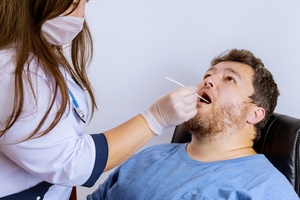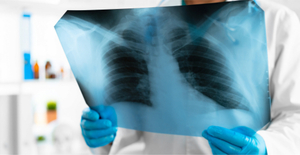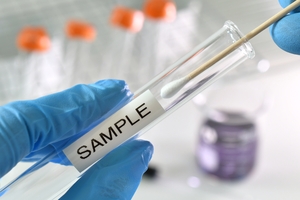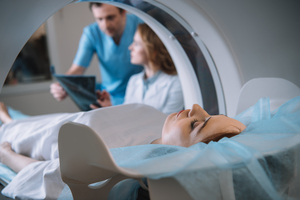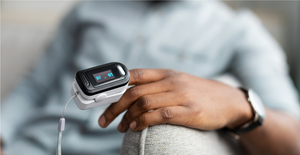Prothrombin Time Testing near me in University of Virginia, Virginia
Own a clinic? Add your location.
Help patients book appointments with you on Solv. It's free!
0 instant-book locations
Augusta Health Crozet Convenient Care Clinic
Augusta Health Crozet Convenient Care Clinic
Valley Urgent Care & Occupational Medicine
Valley Urgent Care & Occupational Medicine
Carilion Urgent Care
Carilion Urgent Care
Own a clinic? Add your location.
Help patients book appointments with you on Solv. It's free!
About Prothrombin Time Testing
Prothrombin Time (PT) Testing is a common blood test used to evaluate the time it takes for blood to clot. It measures the activity of certain proteins, known as clotting factors, in the blood. PT Testing is essential for assessing the coagulation system and monitoring the effectiveness of anticoagulant medications, such as warfarin. This test helps healthcare providers diagnose bleeding disorders, monitor patients on blood-thinning medications, and guide appropriate treatment to prevent excessive bleeding or clotting.
Who Should Get Tested
If you reside in University of Virginia, Virginia, and have a history of bleeding disorders, are on anticoagulant therapy, or are undergoing surgical procedures, Prothrombin Time (PT) Testing may be recommended by your healthcare provider. Additionally, individuals with certain medical conditions or risk factors that affect blood clotting may benefit from this test.
Tests Included in Prothrombin Time (PT) Testing
Prothrombin Time (PT) Testing includes the measurement of the time it takes for blood to clot in response to certain clotting factors.
Interpreting the Results
The interpretation of Prothrombin Time (PT) Testing results is based on the clotting time compared to a standard value. A longer PT time may indicate a deficiency in clotting factors, while a shorter time may suggest a hypercoagulable state.
Importance of Prothrombin Time (PT) Testing
Prothrombin Time (PT) Testing is important for:
- Diagnosing bleeding disorders, such as hemophilia and von Willebrand disease
- Monitoring the effectiveness of anticoagulant medications, like warfarin
- Evaluating the risk of excessive bleeding or clotting during surgery
- Guiding appropriate treatment to manage clotting disorders
Following the Test
After Prothrombin Time (PT) Testing, healthcare providers review the results with individuals and offer recommendations based on the findings. Depending on the results, further testing and evaluation may be necessary to determine the underlying cause of abnormal clotting times.
Prothrombin Time (PT) Testing is a valuable tool for assessing the coagulation system and ensuring proper blood clotting in individuals in University of Virginia, Virginia. This helps prevent bleeding complications and supports optimal healthcare management.
Prothrombin Time Test FAQs
Where is the best place to get prothrombin time testing in University of Virginia?
To get prothrombin time testing in University of Virginia, consider medical laboratories, primary care offices, and hematologists' offices. Some urgent care centers may also offer this service. Check the cost and health insurance coverage. There are approximately 3 locations in University of Virginia where you can access this testing service.Who should get tested for prothrombin time (PT)?
Individuals taking anticoagulants or with bleeding disorders may undergo prothrombin time testing to monitor their blood's ability to clot properly and adjust medication dosages as necessary.How much does prothrombin time testing cost in University of Virginia?
Prothrombin time testing cost in University of Virginia varies. Health insurance may cover a portion of the cost based on the plan, and the pricing may differ between urgent care centers and medical labs. To get precise cost details, contact nearby labs. 3 locations in University of Virginia offer this test.Will health insurance cover prothrombin time testing?
Health insurance coverage for prothrombin time testing can vary based on your insurance plan. Some plans cover this testing when medically necessary and approved by a physician. However, it's essential to check with your insurance provider to understand the specific coverage, any potential requirements like pre-authorization or physician approval, and if the test is covered at both medical labs and urgent care centers.How do I make an appointment for prothrombin time testing in University of Virginia?
Solv makes it hassle-free to schedule prothrombin time testing in University of Virginia. Our platform lets you discover nearby urgent care centers and medical labs providing this service. With same day and next day availability, you can easily find a suitable appointment for your test. Use our website or mobile app to quickly book your prothrombin time testing appointment.

Updated on Jan 25, 2025
Related searches
Ear Wax Removal in University of Virginia
Physical Exam in University of Virginia
Sports Physicals in University of Virginia
A1C Test in University of Virginia
Allergy Testing in University of Virginia
Basic Metabolic Panel in University of Virginia
Blood Test in University of Virginia
CMP Test in University of Virginia
COVID-19 Antibody Test in University of Virginia
Cholesterol Test in University of Virginia
Diagnostic Test in University of Virginia
Drug Test in University of Virginia
Flu Test in University of Virginia
Glucose Test in University of Virginia
Lab Tests in University of Virginia
Mono Test in University of Virginia
Pregnancy Test in University of Virginia
RSV Test in University of Virginia
STD Testing in University of Virginia
Strep Test in University of Virginia
TB Test in University of Virginia
Find lab tests
Nearby cities
Everyday Healthcare, Simplified
Expert advice to help you live your best life



